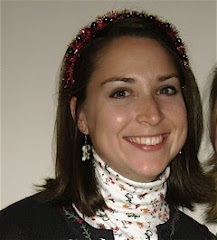
I was having trouble writing today, so I snuck off to Border's in downtown Ann Arbor and read about 100 pages of the book I am reading at home, Cormac McCarthy's The Road.
Emily Lethenstrom recomended this to me recently, or, rather, she asked if I had read it, and so when I happened across the book at Powell's at PDX, I couldn't resist picking it up and thumbing through the first few pages. I wasn't hooked on a particular character, at least not right away, but I was immediately taken in by the ease at which the book could be read. Admittedly I am a little rusty at reading fiction, as I am forced to read history and cultural studies texts at a rapid rate and have become accustomed to their thick and burdensome prose, so Cormac McCarthy's story flew off the pages for me and I thoroughly enjoyed the chance to read a text quickly and easily. Also, there is something about a 'survival narrative' that appeals to the little "stranded-on-a-desert-isle robinson crusoe" in me.
Anyhow, the book ended up being a meditation on love and the parent-child relationship, and perhaps because it was set in a post-apocalypse it was surprisingly pared-down, with little attention paid to the cause of the characters' nightmare. Finding food, protecting one-another, and finding the mental strength to travel-on were the primary concerns of these protagonists, with little attention paid to that which put them in the survival situation in the first place (postwar nuclear holocaust, we must infer). That said, I couldn't help wondering about the big picture, guessing at the root cause of the problems the characters encountered. I wanted the narrator to elucidate the back story, namely, the historical conditions that created their predicament. I wondered what political statement McCarthy was making. Perhaps I wanted the book to go in that direction because I tend to look for macro-level elements of any story, to identify causation and agency and context and other factors that help me understand the "big picture."
But an explaination of "the big picture" did not happen for me, not in this book. Readers don't find out what caused the war that created this tragic life (for my two cents I think it was climate change that led to the destruction, not imperialist nation-states, and certainly not global terrorism). In the end what McCarthy offers is a chance for readers to see common human values in a context where society has imploded upon itself. In a Hobbesian state of nature we all have the same needs: food, water, shelter, safety, love, purpose. To drive home the universal nature of the characters, "the man" and "the son" are never given personal names. They stand as synedoche for any and all individuals caught in global catatrophe, suggesting that readers best not forget that their base needs are of primary concern.
Your point is well taken, Cormac McCarthy. I aim to go and put a few cans of food in the pantry, just in case.


No comments:
Post a Comment